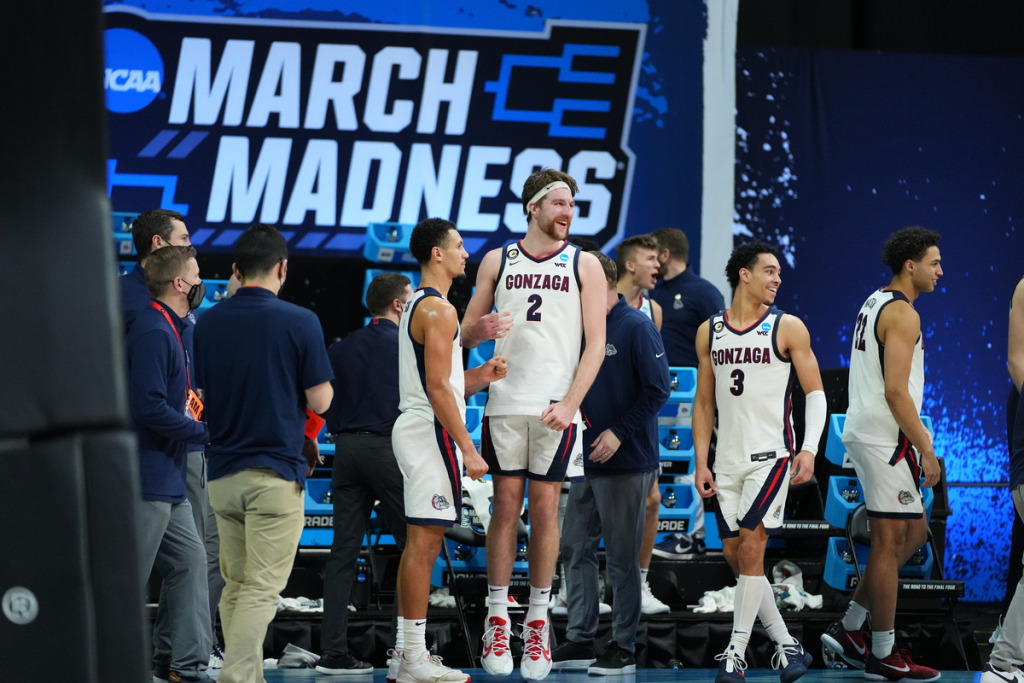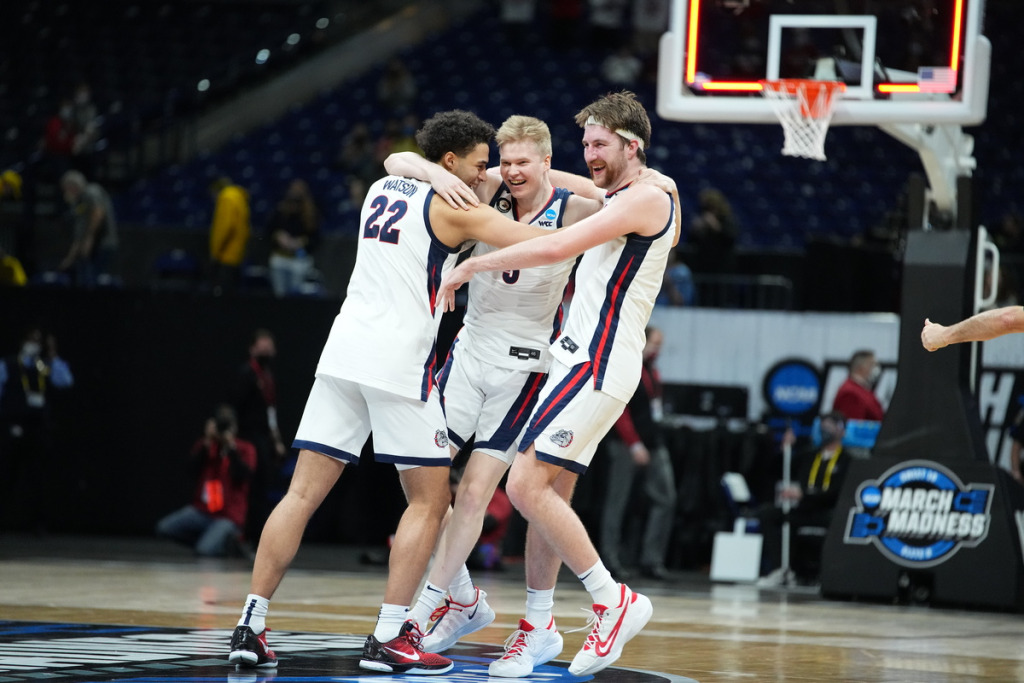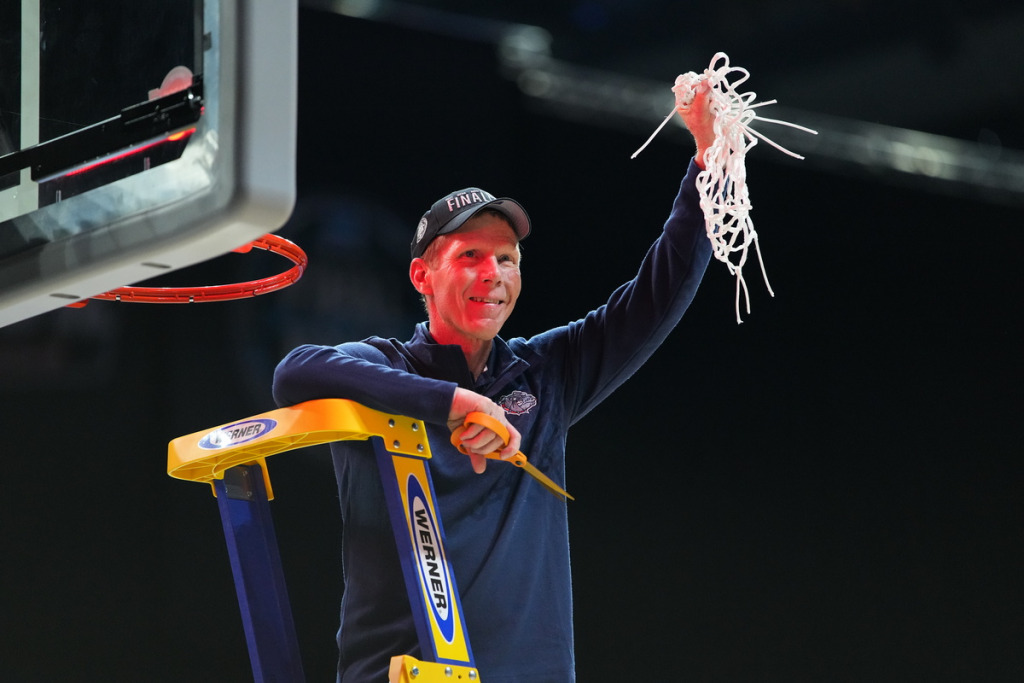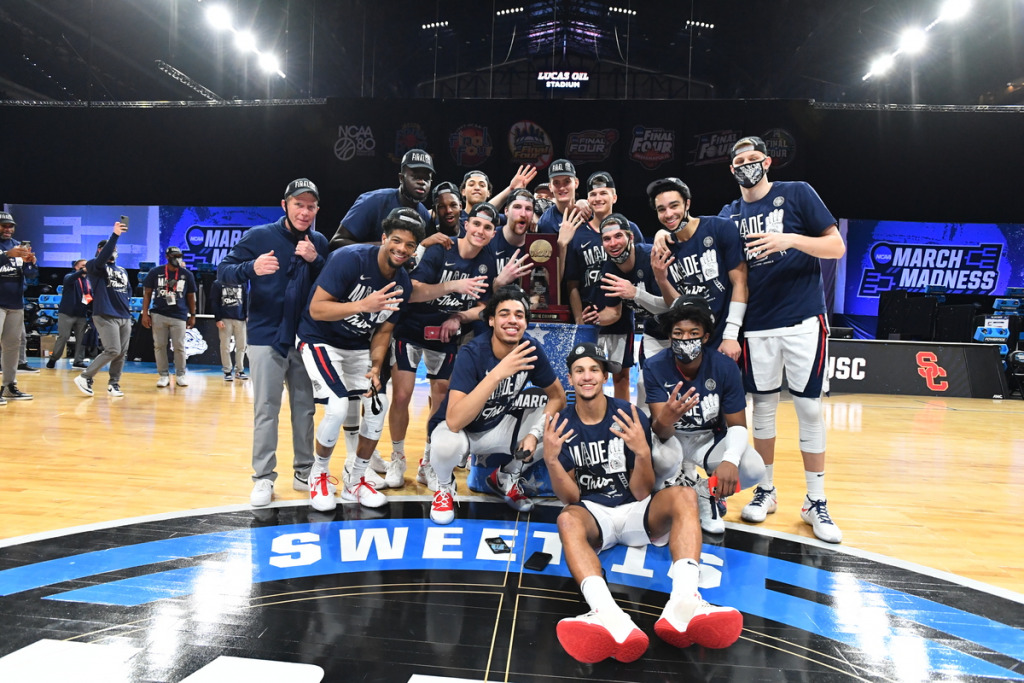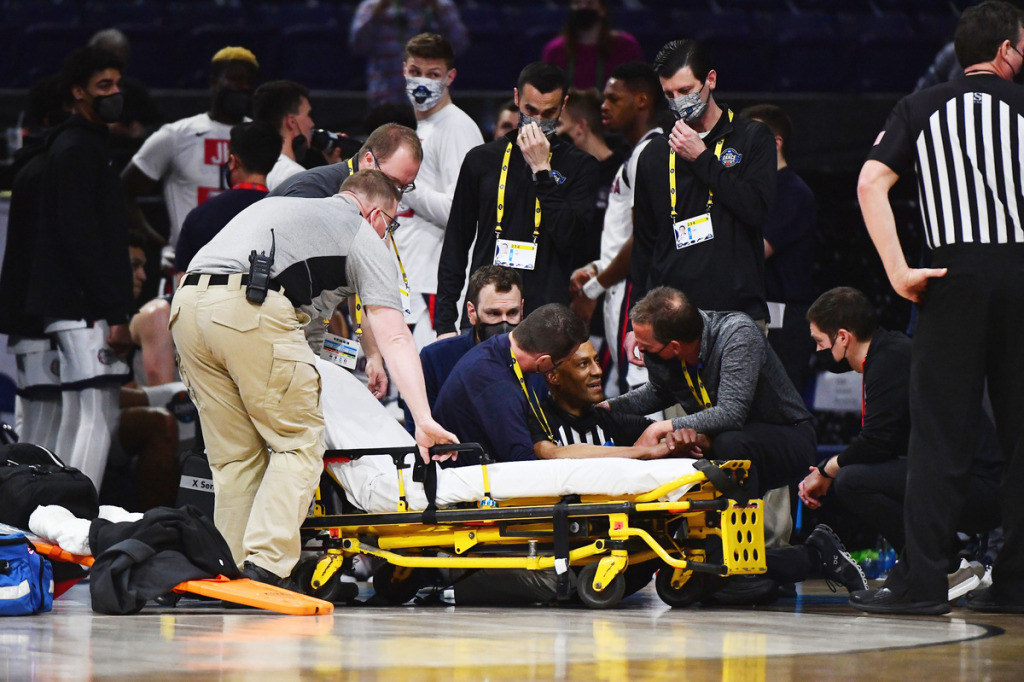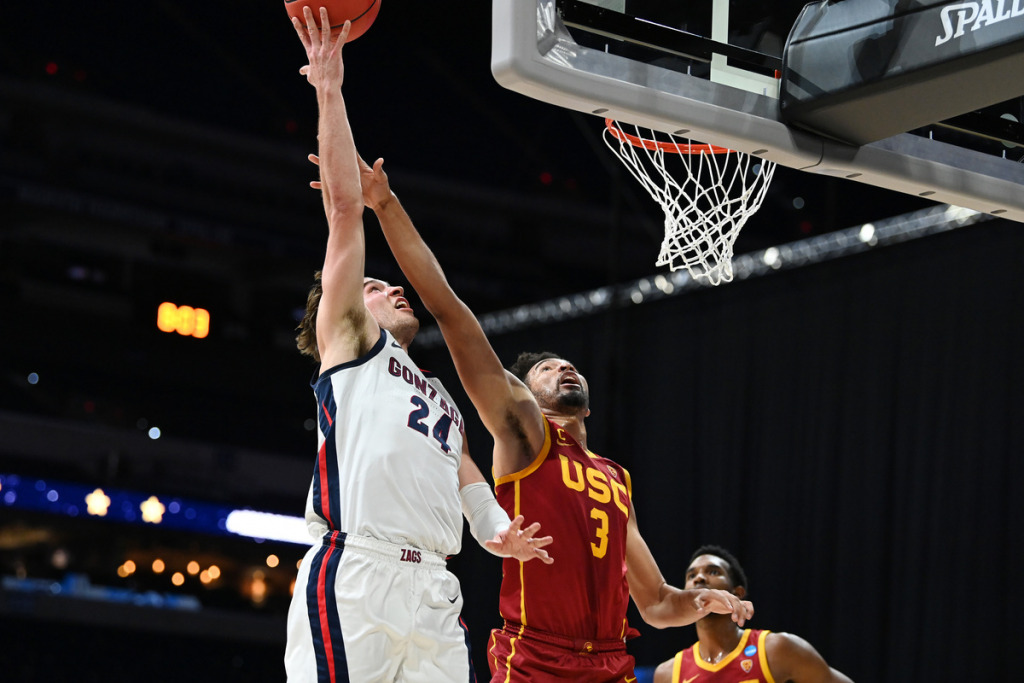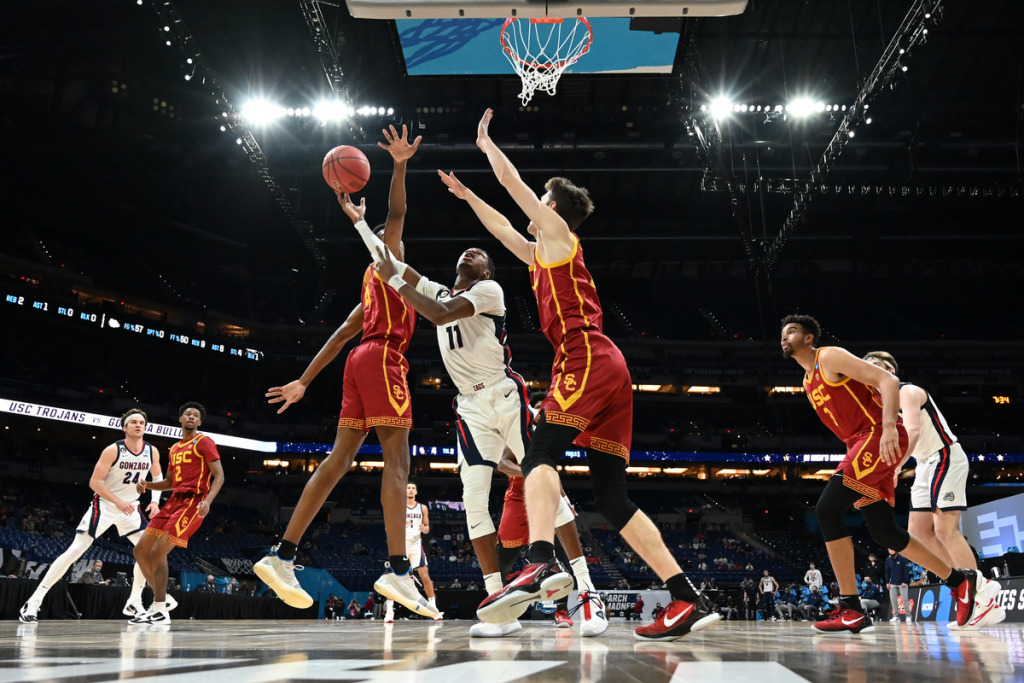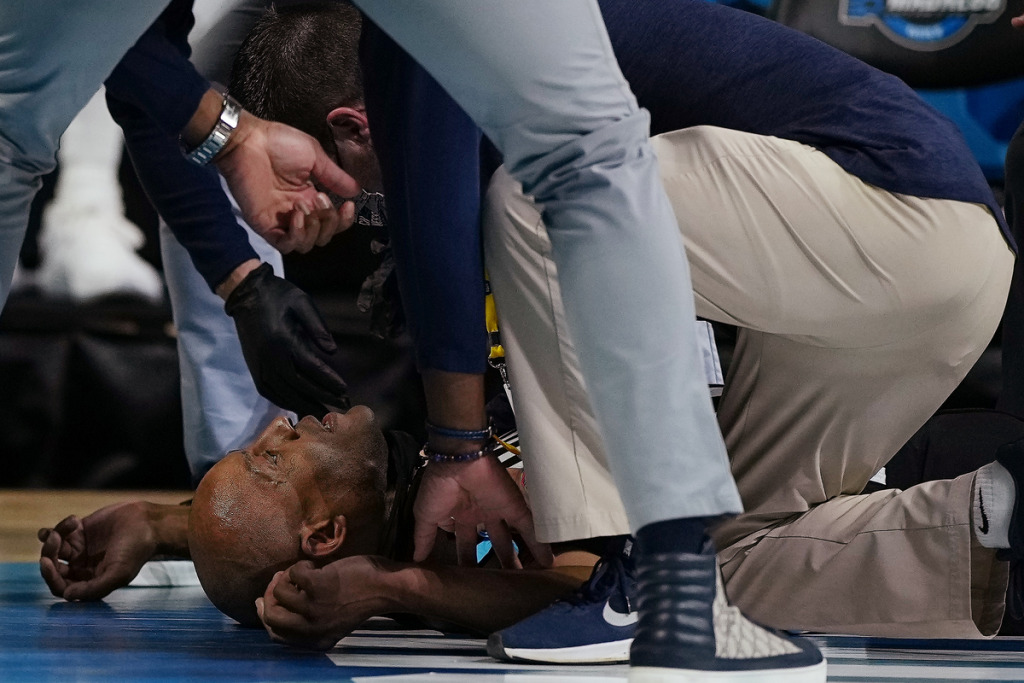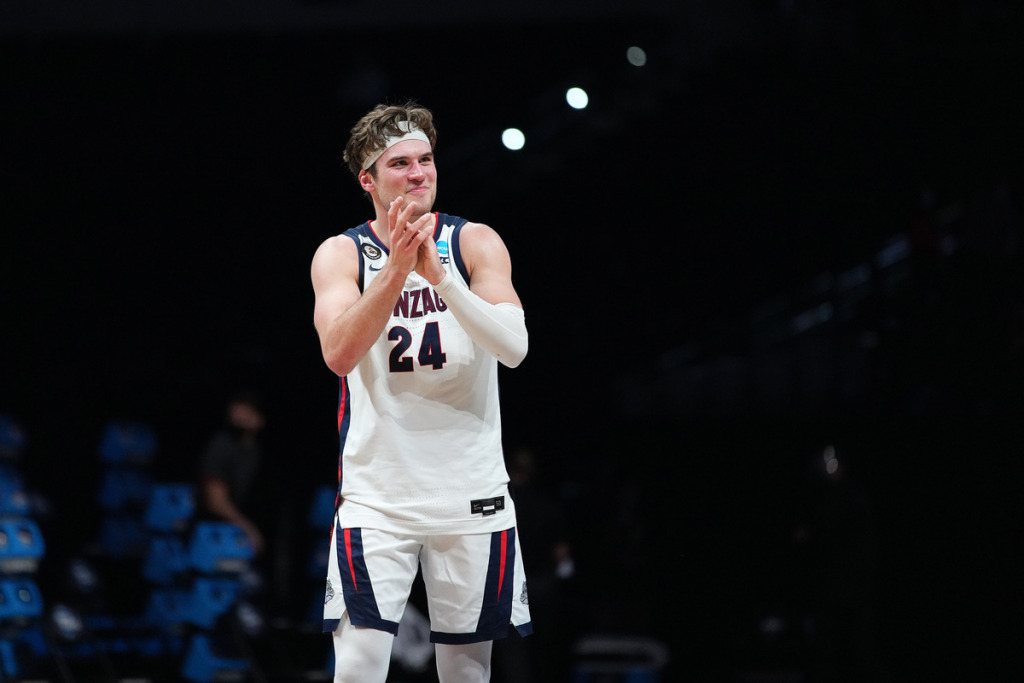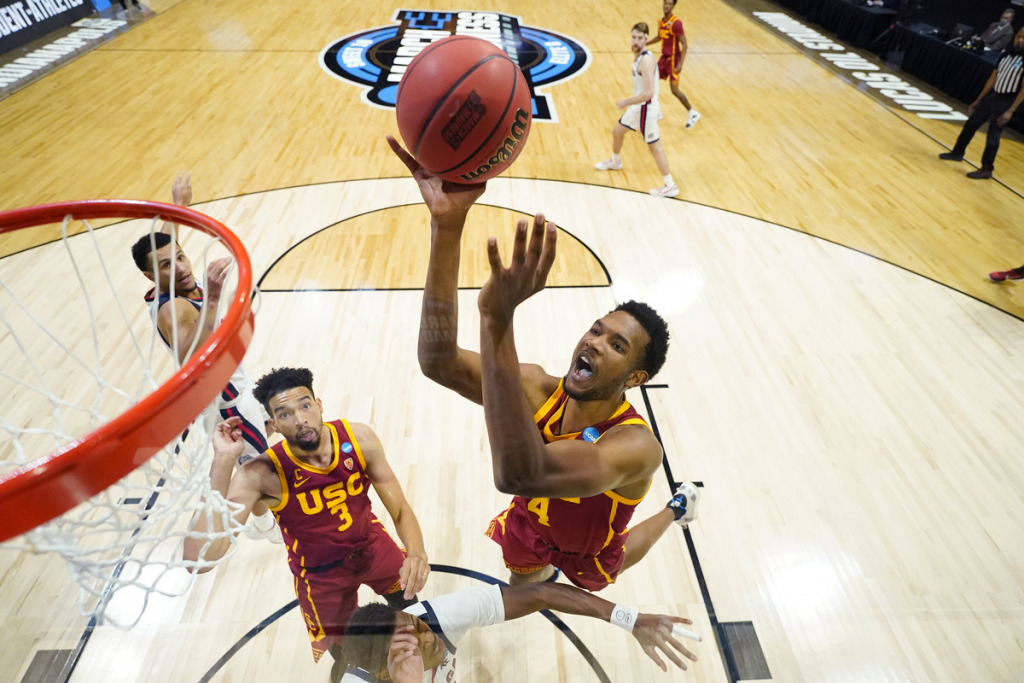Subscriber Benefit
As a subscriber you can listen to articles at work, in the car, or while you work out. Subscribe NowGonzaga’s countdown to perfection has ticked to two.
The Bulldogs are back in the Final Four, two wins from becoming the first undefeated team since the 1976 Indiana Hoosiers.
 And, after all those upsets, the March Madness apex in the Hoosier State will be a high-seeded affair.
And, after all those upsets, the March Madness apex in the Hoosier State will be a high-seeded affair.
Gonzaga is a No. 1 seed. So is Baylor. Houston, a 2.
The final spot, to be decided late Tuesday, will go to either No. 1 Michigan or UCLA. The Bruins are an 11, but they’re also the all-time leaders in national championships.
There also will be a trip down Southwest Conference memory lane.
But the Zags will be the team to beat.
Gonzaga (30-0) has been an offensive juggernaut rarely seen in college basketball. Fast moving and free flowing, the ultra-efficient Zags have steamrolled everyone in their way, winning a Division I-record 27 straight games by double digits.
An 85-56 dismantling of Southern California in the Elite Eight stretched their win streak to 34 games over two seasons and put them back in the Final Four for the second time in the past four NCAA Tournaments. Gonzaga came up short in a loss to North Carolina in the 2017 national title game, but has its sights set on finishing it off this time—and grabbing a piece of history.
The Zags will face Michigan or UCLA in Saturday’s national semifinal.
“Everyone wants us to keep moving forward, but that’s not how we roll,” Gonzaga coach Mark Few said. “This is a heck of an accomplishment. We’re going to take it and savor it for what it is. That doesn’t lessen our desire to win this game, the next game or win two more games.”
The Texas half of the draw will have a Southwest feel.
Baylor and Houston were both members of the Southwest Conference, which splintered in 1996. The Bears were there when the league started, circa 1914. The Cougars made the move from independent to SWC status in 1975.
The latest versions of the two programs are nearly identical: long, athletic, quick, breath-squeezing defense.
Baylor went on a long rebuild to finally get here.
The Bears were embroiled in one of the darkest scandals in college basketball history, when Patrick Dennehy was murdered by teammate Carlton Dotson in 2003. Coach Dave Bliss then resigned after it was revealed he encouraged players to lie about Dennehy to cover up NCAA violations.
In stepped coach Scott Drew.
Drew took the Baylor job after serving a one-year stint succeeding his father, Homer, at Valparaiso, and he went through some extra-lean years early on in Waco.
He’s since molded the program into a national powerhouse.
The Bears (26-2) were unstoppable this season before a COVID-19 pause slowed their roll, but they’ve been back to their dominating ways in March.
After twice failing at the regional final under Drew, Baylor beat Arkansas in the Elite Eight to reach the Final Four for the first time since 1950—when the bracket was eight teams and the City College of New York Beavers won the national championship.
“Once we got into the (first) season and you found out that most of your team were walk-ons and most of them weren’t over 6-foot-2, then you realized it might be tougher than you originally thought,” Drew said. “But obviously the goal was always to build a program that could consistently compete and have an opportunity to play in March.”
Kelvin Sampson has made a similar imprint on Houston.
The Cougars had lost the luster from the Phi Slama Jama days, reaching the NCAA Tournament once in 22 years before Sampson was hired in 2014.
Sampson gradually built Houston back up, taking it to the NCAA Tournament’s second round in 2018, the Sweet 16 the next year. The fleet-footed Cougars (28-3) were dominating this season and grinded down their first four NCAA Tournament opponents to reach their first Final Four since losing in the 1984 national championship game.
The run has intriguingly come in Indiana, home of the NCAA and where Sampson’s career nearly came to an end. He was forced out at Indiana in 2008 due to NCAA sanctions and now, 13 years later, has completed to circle back to the Hoosier State to compete for a national championship.
“We’ve taken a group of kids to get them to believe and they’ve accomplished something that no matter what happens this weekend, it’s something that nobody can take from them,” Sampson said. “They’ll always be known as a Final Four participant. They played in the Final Four.”
Please enable JavaScript to view this content.

